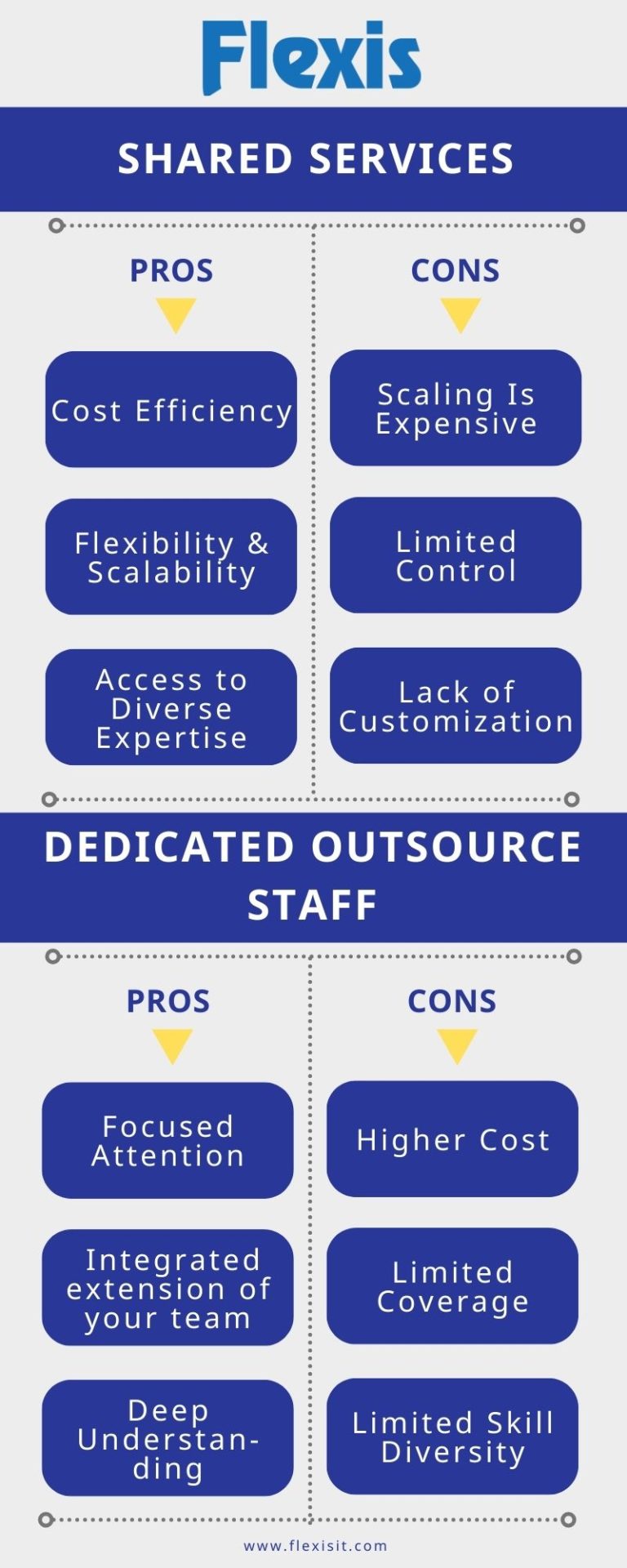
The Pros & Cons Of Shared vs. Dedicated Outsourced Support
In the realm of managed services, the decision to outsource NOC (Network Operations Center) or Helpdesk functions is a critical one. One must carefully weigh the benefits and drawbacks of choosing between dedicated outsourced staff versus leveraging shared teams. In this blog post, we delve into the pros and cons of each approach to help you navigate this decision with confidence.
Shared Teams
Pros
Flexibility and Scalability: Shared teams provide greater flexibility to scale resources up or down based on fluctuating demands, ensuring optimal resource allocation.
Cost & Coverage Efficiency: Shared teams offer an easy entry point and a more cost-effective solution as resources are pooled among multiple clients, resulting in lower overall expenses. It is also the most cost-effective way to obtain 24/7 coverage.
Access to Diverse Expertise: Shared teams often consist of specialists with diverse skills and experiences, providing access to a broader range of technical skillsets, Windows, networking, DBA, Linux, Backup, Azure, AWS, etc.
Cons
Scaling Is Expensive: Exactly what makes the shared team cost-effective at a small scale can make it prohibitively expensive at a large scale; the best way to avoid this problem is to transition from shared to dedicated at scale.
Limited Control: Working with a shared team may allow less control over SOWs, schedules, and workflows, limiting your ability to control how the service is delivered.
Lack of Customization: Since shared teams are working from an SOW, you can’t control their activities or change the way that they respond to issues.
Dedicated Outsource NOC/Helpdesk Staff
Pros
Focused Attention: With dedicated outsource staff, you benefit from undivided attention and expertise solely dedicated to your NOC or Helpdesk operations; you also manage the staff so you have complete control of their day-to-day activities which you can change as priorities require.
Part of Your Team: Dedicated staff will use your tools, including the ticketing system, and will follow your process and methodology. There is also close collaboration with your internal team to drive additional value.
Deep Understanding: Over time, dedicated outsourcing staff develop a comprehensive understanding of your systems, workflows, and customer needs, leading to enhanced efficiency and service quality.
Cons
Higher Cost: Dedicated staff often come with higher costs compared to shared teams, as you’re paying for their exclusive attention and expertise. Normally this requires a certain level of scale to be the right choice.
Limited Coverage: Unless you build a completely outsourced 24×7 team, a shared resource is working 5 days/week, 8 hours/day. This means they can add great value but not complete coverage, unless you are able to hire multiple technicians to cover multiple shifts.
Limited Skill Diversity: Dedicated staff may lack the diverse skillsets and perspectives that a shared team can offer, potentially limiting the breadth of technical skills they can work on.
Conclusion
When it comes to outsourcing NOC or Helpdesk functions, there is no one-size-fits-all solution. The decision between dedicated outsource staff and shared teams depends on factors such as budget, service requirements, and organizational culture. While dedicated staff offer focused attention and alignment with company values, shared teams provide cost efficiency and access to diverse expertise. Some MSPs may leverage both dedicated and shared staff at the same time to handle different aspects of their service delivery. Other MSPs may transition from shared to dedicated as their environment scales. Ultimately, careful consideration of these pros and cons will help you determine the most suitable approach for your managed services needs.

Take these two assessments to see which model is good for your business.
